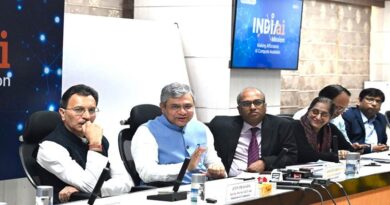ICMR Detects Two Cases of Human Metapneumovirus (HMPV) In Karnataka: Surveillance System Shows No Widespread Threat
(Judicial Quest News Network)
In a recent development, the Indian Council of Medical Research (ICMR) has confirmed the detection of two cases of Human Metapneumovirus (HMPV) in Karnataka, marking the first known instances of the virus in the region through routine surveillance. The cases were identified as part of ICMR’s ongoing efforts to monitor and control respiratory diseases across the country, emphasizing the effectiveness of India’s surveillance systems.
What is Human Metapneumovirus?
Human Metapneumovirus (HMPV) is a viral respiratory pathogen that circulates globally, including in India. While it can cause illnesses ranging from mild cold-like symptoms to more severe respiratory infections, HMPV is not new. Cases of respiratory illnesses linked to HMPV have been reported in multiple countries. The two recent cases in Karnataka have raised awareness, but there is currently no indication of an unusual increase in the number of Influenza-Like Illness (ILI) or Severe Acute Respiratory Illness (SARI) cases across the country.
Details of the Two Detected Cases
- A 3-month-old female infant: The first case involved a three-month-old female infant admitted to Baptist Hospital, Bengaluru, with symptoms of bronchopneumonia. After undergoing routine testing for respiratory pathogens, she was diagnosed with HMPV. Fortunately, she has been discharged and is recovering well.
- An 8-month-old male infant: The second case was detected on January 3, 2025, involving an 8-month-old male infant, also admitted to Baptist Hospital with bronchopneumonia. After testing positive for HMPV, the infant is currently under care and showing signs of recovery.
Both infants did not have any history of international travel, which underscores that the virus is circulating within the country.
ICMR’s Vigilant Surveillance and No Unusual Surge
The ICMR and the Integrated Disease Surveillance Programme (IDSP) network have both reported that there is no abnormal rise in ILI or SARI cases at the national level. This ongoing surveillance, coupled with a robust healthcare infrastructure, ensures that the spread of such viruses is closely monitored, with immediate intervention if necessary.
The Union Ministry of Health is closely monitoring the situation through all available surveillance channels. This includes coordination with global health bodies like the World Health Organization (WHO), which continues to provide timely updates on developments in regions such as China.
India’s Preparedness Against Respiratory Illnesses
India’s preparedness to handle potential surges in respiratory illnesses has been put to the test through recent drills, which have shown that the country is equipped to tackle any increase in respiratory infections. The health authorities have made it clear that prompt public health interventions will be deployed if necessary to safeguard public health.
ICMR’s Ongoing Surveillance
ICMR will continue to monitor trends in the circulation of HMPV throughout the year, with a keen eye on its potential impact. The early detection of these cases highlights the importance of India’s surveillance systems and the country’s ability to respond quickly to emerging health threats.
In summary, while the detection of HMPV in Karnataka is notable, the situation remains under control, with no signs of widespread outbreaks. The country’s robust health surveillance system, combined with timely responses and global cooperation, ensures that India is well-equipped to manage the situation effectively.

